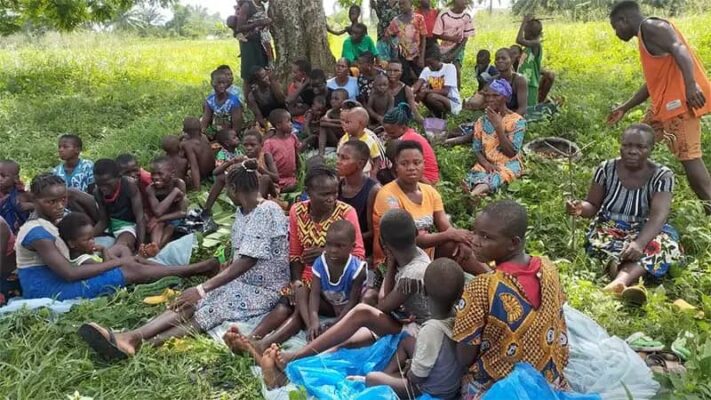Displaced residents from the troubled Okuama community in Ughelli South Local Government Area have moved into an Internally Displaced Persons (IDP) camp constructed by the Delta State government.
The relocation follows military operations in the community triggered by the killing of soldiers on a peace mission in March. Many villagers had fled their homes to seek refuge in nearby forests and communities to escape the subsequent unrest.
In a decisive move to address the crisis, Governor Sherrif Oborevwori met with Okuama leaders at Government House in Asaba last Friday. After the meeting, buses were dispatched to an agreed location to transport the displaced villagers to the newly established camp at Okuama-Ewu in Urhobo kingdom.
Initially, the displaced residents were reluctant to move into the camp, arguing it was built outside their ancestral land. However, the state government cited security and logistical concerns, ultimately convincing the villagers to relocate after Governor Oborevwori assured them of his commitment to their welfare. He promised to begin rebuilding the community’s health center and a six-classroom block within weeks.
As a result, buses ferried men, women, and children from Okuama to the IDP camp. Pastor Edewor Ogedegbe, one of the displaced villagers, expressed a cautious optimism: “We’re convinced Oborevwori means well. We had concerns about the camp’s location, but the governor assured us that the government would address the issues systematically and gradually.”
Despite the progress, Pastor Ogedegbe noted the challenge of adequately accommodating all displaced persons, remarking, “Today, we are here, two buses have come and gone, and they are going back again, but when you talk about 200, it is a far cry from even the people that are coming only today.”
This situation creates awareness about the conflict in Okuama and the resulting displacement, shedding light on the broader issues of security and humanitarian crises within Nigeria.
It may also trigger a broader humanitarian response, with NGOs and international bodies potentially increasing their involvement and support for the displaced villagers and similar communities in crisis.
Also, the government’s proactive response, including the governor’s personal involvement, may enhance public confidence in local authorities. Demonstrating a commitment to addressing the needs of displaced persons can improve the government’s reputation and public trust.
Furthermore, the awareness of the villagers’ plight and the government’s actions may foster solidarity among neighboring communities. This could lead to increased local support and volunteerism, with people and organizations stepping up to assist the displaced residents.
Also, the situation may prompt societal reflection on the root causes of such conflicts and the effectiveness of peacekeeping efforts. It could stimulate discussions on conflict resolution, security measures, and long-term strategies for preventing similar incident
However, this situation shows the importance of responsive governance and the need for sustained efforts to address the root causes of displacement and community unrest.





